Should You Worry About Your Havanese Shedding?
Havanese dogs are adorable. But do Havanese shed?
No Havanese do NOT shed. They have hair rather than fur, and due to the long growth cycle of the dog hair in a Havanese dog they don’t shed. They are also hypoallergenic and as a breed, these desirable characteristics all come down to breeding and the DNA.
What does this mean for you?
Great question. It means as a family or person looking for a new pet this breed should be at the top of the list. They are very very loving, love to play and cuddle, and they don’t make a big mess. Shedding can be a serious issue when it comes to cleanliness in the home, and if you have anyone that suffers from allergies you know that they need a clean home.
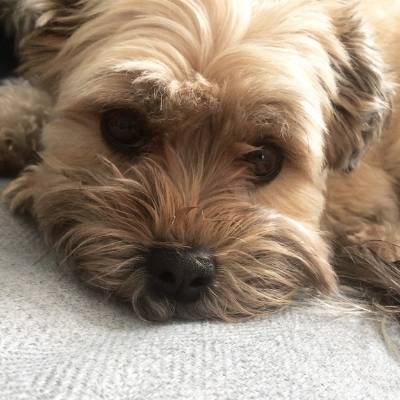
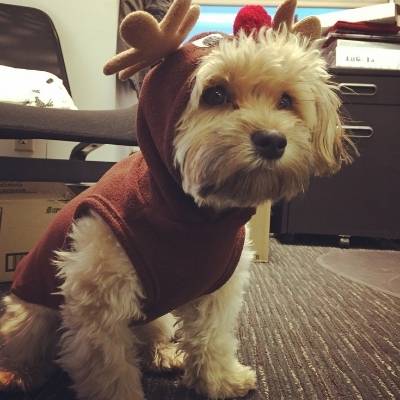

Let’s Talk About the Havanese
The Havanese are great little dogs, they do have a double coat, which seems to make people afraid that they might shed or that this cuban national dog might be a mess. But nothing could be further from the truth. They do require some grooming, but they are typically really clean.
They have silky coats of fur that range anywhere in colour from black to white and red to gold. They are fun, excitable, and the perfect fuzzy companions for just about anyone.
However, you may be worried that with all that silky hair comes shedding. Maybe you are allergic to dog hair, or maybe you just don’t want an animal that will leave its hair all over your clothes and furniture.
Do keep in mind that Havanese have a long coat. Because of this, they will lose some hair sometimes. Another long-haired dog breed native to where you are will shed a lot, but not the Havanese. The good news is that the Havanese shedding can be controlled fairly well. As we said, they don’t lose much of their hair – no more than any ordinary, long-haired dog. But they do need to be groomed frequently and taken care of to ensure their coat remains healthy, untangled, and unknotted.
One look at any Havanese that isn’t constantly groomed and you can tell straight away the kind of mess that happens. Their beautiful hair gets unkempt and they look, quite honestly, a little homeless. Give your dog appropriate baths, keep up with grooming, and you won’t have much to worry about in the shedding department.
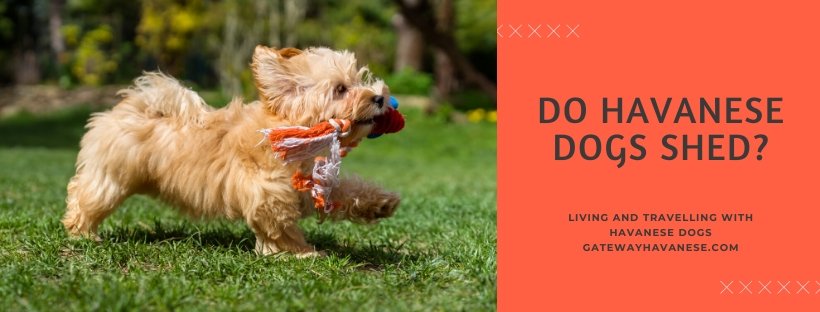
When Do Havanese Shed?
So you are wondering as a dog breed when do Havanese shed?
For such scrappy, long-haired pups, Havanese will not shed much, and not as much as people think. It looks like they would because of all that hair, but they don’t.
This is because their hair lives a long and healthy life. This may seem like a silly thing to say, but that’s the science behind it. The Havanese’s hair does not die and fall off their bodies as quickly as other dogs’ hair. Of course, every animal that grows hair sheds a little, even us humans, but Havanese are exceptional at keeping their hair for longer.
The times you can expect your Havanese dog to shed the most are going to be earlier in the spring and later in the fall, just like another dog breed. This is the shedding season for your Havanese. You can keep your house nearly 100% free of dog hair even in these two seasons by brushing your dog’s hair with a quality dog brush every day in the morning. It’s a good routine to get into anyway.
Doing this will give you some more quality time with you and your dog, your dog will enjoy it, and you will be happy when no hairs turn up on your black pants.
Havanese (aka – The Havana Silk Dog) are particularly popular in big cities because of this lack of shedding, and because of the Havanese temperament. Even when they can’t get outside, it is easy to keep your dog groomed at home in an apartment. Make sure you keep their undercarriage clean too.
Related Article – Big Dogs that Don’t Shed
Havanese Shedding and Allergies
Havanese are classified as hypoallergenic. This is because of what we already stated: the dog’s hair will stay on their body for longer. This means less of sneeze-worthy dandruff and hair particles that cause allergies will be floating around your home. The havanese breed is perfect for people with dog allergies (so long as the allergies aren’t life-threatening), and many who are allergic to dogs love them because of their long hair. Normally if someone is allergic to dogs they are restricted to short-haired breeds.
We have an entire article on hypoallergenic Havanese. Please visit it for more details on how Havanese can work for you and your allergies.
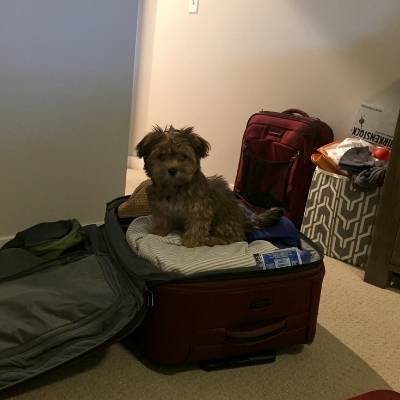

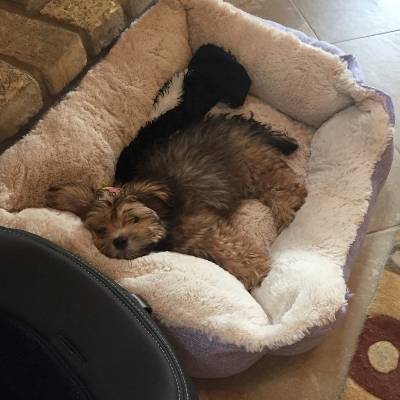
How Can I Reduce Shedding for Havanese Dogs?
Even though Havanese don’t shed very much, especially outside of spring and fall when they shed the most, there are still actions you can take to prevent any shedding whatsoever. You are going to want to brush their long, lustrous hair a lot.
This will get rid of all the nasty dead hairs still clinging to their skin or caught among the living hairs. This activity can be done once a day or once a week. If you keep up with it, there will hardly be a single hair falling off your dog. Also, because the Havanese coat is so silky, you don’t need to fight with the brush. You can gently groom your dog without digging deep in their coat and causing discomfort.
Washing and Shampoo
The shampoo is important. Not just to reduce shedding, but also to keep your dog smelling fresh and looking good. Because Havanese dogs are so friendly and cuddly, we bet you are going to be spending a lot of time with your face (or at least your hands) buried in its soft fur.
If you have young children, they will likely be playing and cuddling the dog even more than you.
By washing your dog with an anti-itch shampoo, you will stop them from scratching and kicking off their otherwise good hairs all over the house. If you bathe your dog just two or three times a year, we suggest doing it in the fall and spring.
Double-Layered Coat
Because this breed has a double-layered coat, it grows more hair to keep itself warm for the winter. In the spring and fall, it sheds that hair. These are the perfect times to give your dog a bath and stop it from shedding.
Do Havanese Puppies Shed?
They do. However, this is normal. Every puppy from every breed needs to shed their baby fur coat. It’s true for German Shepherds and it is true for Havanese. But this should not worry you. Puppies are even smaller than adults (obviously), and the amount of hair they shed is negligible. You won’t have a hard time cleaning up after them or even brushing out the dead baby hairs. If you do decide to brush your Havanese puppy, please be careful. Their skin is fragile. You must carefully brush their fur without damaging their skin.
Havanese pups will begin shedding their puppy coat at around 6 to 8 months. The whole process will take around two weeks. After that, the “puberty” shedding of your dog is over. You never have to worry about it again. At least, not until your pup has puppies of their own.
The American Kennel Club suggests that you should groom your Havanese every day to stay clean of mats and tangles. This would be especially true for owners who keep their dog’s hair long. The American kennel club is great for information, but you still need to do your research.
Other Articles
The Havanese Bichon Frise Mix – Bichon Frise, Bichon Frise x Havanese
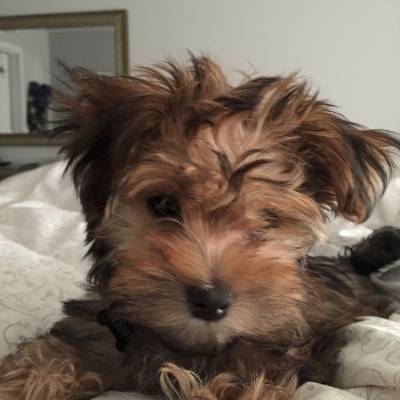
FAQ
Do Havanese Shed Hair?
Havanese don’t shed at all. That is one of the great things about this breed is that they do not shed. I live with a Havanese Dog and I can attest to this. These little dogs have a double coat like some other dogs and cats. They do have some soft and light hairs that will come out when brushing them. Although they aren’t the only dog breed that doesn’t shed, they are also hypoallergenic which makes them a dream.
If anything does come off of the Havanese dog it is hair and not fur. It may sound like a small differentiation, but it is literally the reason that the Havanese don’t shed. Their hair also has a really long growth cycle which means they don’t lose any of it as it is growing. If anything does come off of them it is hair and not fur so it is easy to clean.
Do Havanese Bark A Lot?
These breed of dogs are not really known as barkers. Typically they are not yappy. however like with all dogs it has a lot to do with training and the attention that you give your dog. We have written a whole article about the barking behaviour.
Sometimes when Havanese are left alone they will bark at strangers or cats.
Many pet owners will have different experiences with dogs when it comes to barking, and training will determine a lot of their behaviour.
Does the Havanese Breed Smell?
Not really, Havanese Dogs are known for not being smelly dogs. The thing with all dogs is that your grooming and cleaning practices are key. You need to spend the time making sure your dog is clean. These dogs are not generally a high maintenance dog and doesn’t require a lot of grooming. It does, however, require some. Our little Nessie gets a bath every 3-4 weeks. We also make sure her eyes and face are clean all the time. She also gets her feet washed if she goes outside in the rain, mud or snow.
It is also important to note that grooming is a great way to connect with your dog.
Are Havanese Dogs High Maintenance?
Havanese dogs require moderate attention and thrive on social interaction, enjoying activities like play and walks; while they aren’t overly needy, they enjoy being near their owners. While their coat can demand maintenance, opting for hairstyles like the puppy cut can make grooming simpler.
Do Havanese Like to Cuddle?
Havanese dogs are affectionate cuddlers, with a soft silk-like coat that enhances the experience. They enjoy being close to their owners, whether it’s during movie nights or just lounging, often preferring to be in a lap or right beside you.
Are Havanese Easy to Potty Train?
Havanese dogs are notably intelligent and pick up on things rapidly, making it crucial to provide consistent training. Our own Havanese was easily trained as a puppy, quickly learning to alert us vocally when she needed to go outside, preventing any indoor accidents.
What’s Bad About Havanese?
I own a Havanese Dog, so I am a little biased. However, there are a few things to consider when weighing out the pros and cons. Obviously, there are a lot of pros so here are some of the cons.
- They are small. If you are looking for a big dog this isn’t it
- They lose their black colour after you cut their hair as a puppy. They still look adorable, but the sable is gorgeous.
- They do require grooming, and usually a haircut every six-eight weeks.
- They can mat a little, so pay attention to their tail and undercarriage for mats.
- Hip Displaysia is an issue with this breed like many others. It is something to keep an eye out for. It’s a low percentage but still something to be mindful of.
Do Havanese Attach To One Person
Havanese dogs, known for their affectionate nature, can form deep bonds with their primary caregivers, sometimes showing a preference for one person.
However, individual personalities vary; some might bond closely with one individual, while others connect with multiple family members.
Proper early socialization and training can foster healthy relationships with all household members.
For instance, our Nessie has unique interactions with each of her three caregivers, enjoying cuddles, treats, toys, and city walks depending on who she’s with.

What is the Best Dog Food For a Havanese?
The Havanese dog breed isn’t a high-calorie requirement breed, as such you need to be careful to make sure it gets what it needs in the low amount of calories that it gets. Weight control is important for smaller dogs, as weight gain can contribute to joint issues.
We feed Nessie organic raw food it comes in a patty form and it is 75% meat, chicken, turkey, beef/turkey blend, and then 25% veggie or fruit. It has carrots, apples, pumpkin and zucchini. It is the Pets Go Raw Brand. She also gets additional freeze-dried veggies (Sojos) and we just make that up with the kettle and then keep it in the fridge, about a tablespoon. And then she also gets about a tablespoon of pumpkin puree from the supermarket.
Does a Havanese have an Undercoat?
Havanese have a unique coat that is different from many other breeds. Their coat is made up of a combination of hair and fur. They have a double-layered coat, with the outer coat consisting of long, silky hair and an undercoat of soft, cotton-like fur. The undercoat provides insulation and helps to protect the dog from harsh weather conditions.
While the Havanese’s undercoat is not as thick as in some other breeds, it does require regular grooming and maintenance to prevent matting and tangles. This includes brushing several times a week, as well as occasional trimming or professional grooming to keep the coat healthy and manageable. Havanese are considered low-shedding compared to other breeds, but they still do shed some hair, especially when their coat is not maintained properly.
What Type of Hair Does a Havanese Have?
Breeds like the Havanese, originating from the Cuban revolution period, are appreciated in the United States for their distinct double coat composed of both hair and fur.
The outer layer or topcoat features long, silky hair, which can vary between wavy or curly textures. Beneath, the undercoat is filled with cotton-like fur, offering insulation and protection.
Notably, the Havanese coat has low-shedding properties, making them a favorable option for those asking, “Do Havanese Shed?” and seeking breeds that reduce allergenic concerns or shedding in homes. Yet, to avoid matting, it necessitates regular grooming, brushing multiple times weekly, and periodic trims. They display a myriad of colors and patterns, from black, white, and cream to sable and diverse brown shades, with some even showcasing color mixes, and they generally have a lifespan of up to 16 years.
Can Havanese Be Left Alone?
Havanese are known for their affectionate and social nature, and they thrive on companionship. They can experience separation anxiety if left alone for extended periods of time. While all dogs need to be accustomed to some amount of alone time, the Havanese breed, in particular, can be more sensitive to it.
For short durations, such as a few hours, a well-adjusted Havanese can be left alone if they’ve been gradually acclimated to it. However, consistently leaving a Havanese alone for long stretches, like a typical 8-hour workday, can lead to behavioral problems or increased anxiety.
If you need to be away from home regularly for longer periods, consider options like hiring a pet sitter, arranging for doggie daycare, or having a friend or neighbor check in on your Havanese. Using interactive toys or puzzle feeders can also help keep them occupied. It’s also beneficial to ensure they get plenty of exercise and interaction when you are home.
Remember, consistent training, early socialization, and establishing a routine can help reduce anxiety and make alone time easier for your Havanese.
How Long Should You Walk a Havanese?
Havanese, a member of the bichon family, is one of those dog breeds that exude an unmistakable charm with their lively demeanor. As a toy breed, their energy levels might surprise you, given their petite size. Ensuring your Havanese remains a happy dog involves regular exercise, including daily walks.
The ideal duration for walking a Havanese generally ranges between 20 to 30 minutes, once or twice a day. While they have a playful nature, they don’t require as much exercise as some larger breeds. Yet, consistent, moderate exercise helps them maintain good physical health, mental stimulation, and overall happiness.
Havanese dogs are also quite adaptable. If you’re unable to embark on longer walks, multiple shorter strolls around your neighborhood can suffice. Their small stature makes them excellent companions for indoor play as well, so if the weather isn’t cooperative, a brief indoor fetch session can help burn off some of their energy.
Being social creatures, Havanese also appreciate the opportunity to interact with other pets. If you frequent dog parks, it provides a fantastic environment for them to engage with other dogs, boosting their social skills and ensuring they remain well-adjusted.
In conclusion, while Havanese don’t demand extensive exercise, regular short walks combined with playtime, either indoors or with other pets, contribute significantly to their well-being and happiness.
